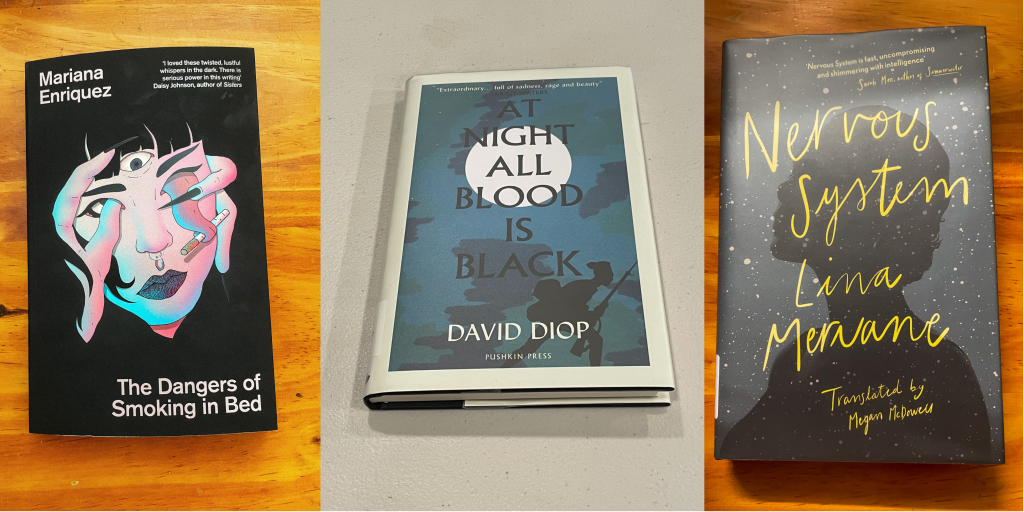One of my favourite things about the end of December and the beginning of January is seeing everyone’s best of lists. It seems like the only times I have posted on my blog are to share my best of lists of 2022 but once again, I am hoping to get back into posting more frequently. The most important first post of the year will be my best books of 2023. I am trying not to complain about my reading lately, and my goal for 2024 is just to have fun and enjoy my reading experiences. I do wish I read more in 2023 but I do have to say that I am very happy with this top 10 list.
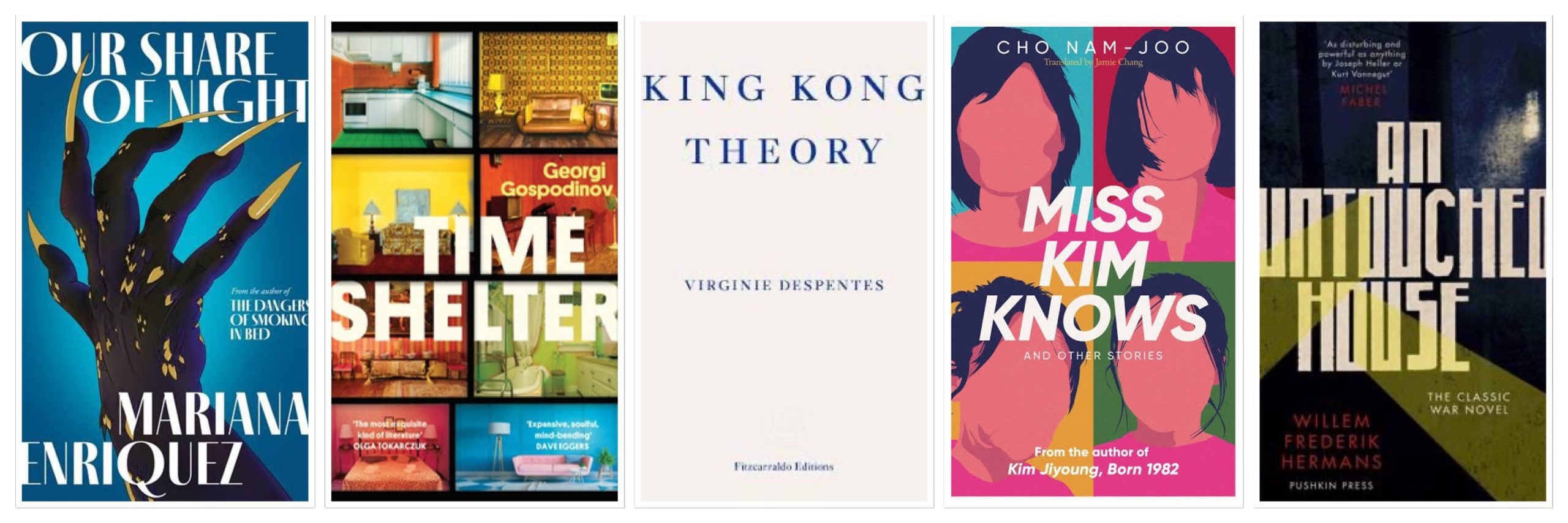
10. Our Share of Night by Mariana Enríquez (translated by Megan McDowell)
I absolutely love Mariana Enríquez’s short stories; they are a blend of gothic horror told from a feminist viewpoint that depict the harsh sociopolitical realities that women face every day. Our Share of Night is her first full length novel to be translated into English and it is an overly ambitious one. This is a 700+ horror novel that is set through out the different Argentinean dictatorships. Enríquez uses the horror genre to explore the horrific nature of dictatorships and the effects they have on the people. If I was able to understand more of what each metaphor or scene symbolised, I am sure I would have loved this book more, but those horrors still sit in my brain, and I know I will need to reread in the future.
9. Time Shelter by Georgi Gospodinov (translated by Angela Rodel)
The winner of the International Booker Prize this year and I had a lot of fun with this, even if I think it kind of waned in the last few chapters. I think this is an exciting novel about human connection, it focuses on a clinic designed to help people with dementia and other memory issues. But this clinic uses a relic that makes their patients believe they are living in the world of their younger selves. This novel may be clever but, sometimes I think it is too clever for its own good.
8. King Kong Theory by Virginie Despentes (translated by Frank Wynne)
This is a manifesto of pure feminist rage. Drawing from her own experiences, Despentes investigates sex work and porn, through a feminist lens. This is a book about the exploitation and sexual assaults on women, not just in sex work but all over the world. This is a gritty, emotional collection of essays and one that will sit with me forever. No words of mine could ever do this book any justice, so I will leave a quote from the author; “I write from the realms of the ugly, for the ugly, the frigid, the unfucked and the unfuckables, all those excluded from the great meat market of female flesh, and for all those guys who don’t want to be protectors, for those who would like to be but don’t know how, for those who are not ambitious, competitive, or well-endowed. Because this ideal of the seductive white woman constantly being waved under our noses – well, I’m pretty sure it doesn’t exist.”
7. Miss Kim Knows and Other Stories by Cho Nam-joo (translated by Jamie Chang)
Kim Jiyoung, Born 1982 remains a favourite of mine, it was one of those books, I finished and wanted to reread right away. In fact, I found the audiobook and listened to it with my wife while we travelled. It was a powerful book and when I saw this collection of short stories based around the book, I picked it up right away. I didn’t even know this existed until I randomly saw it in my local indie bookstore. This is what I loved about Kim Jiyoung, Born 1982 but expended to different age groups, a mixture of different microcosms; a story set in a school, a work place, even one that is capturing growing old. I think Cho Nam-joo has found her style and I want to see more stories like this.
6. An Untouched House by Willem Frederik Hermans (translated by David Colmer)
This is a novel I knew nothing about, but it was so mesmerising and haunting that I think maybe Hermans should be judged alongside authors like Joseph Heller and Kurt Vonnegut. Set in World War II, this book follows a Dutch soldier that is so exhausted from the war, that he finds an abandoned hour and just decided to inhabit it. This is a dark meditation on survival, the horrors of war and I found it both profound and unsettling.
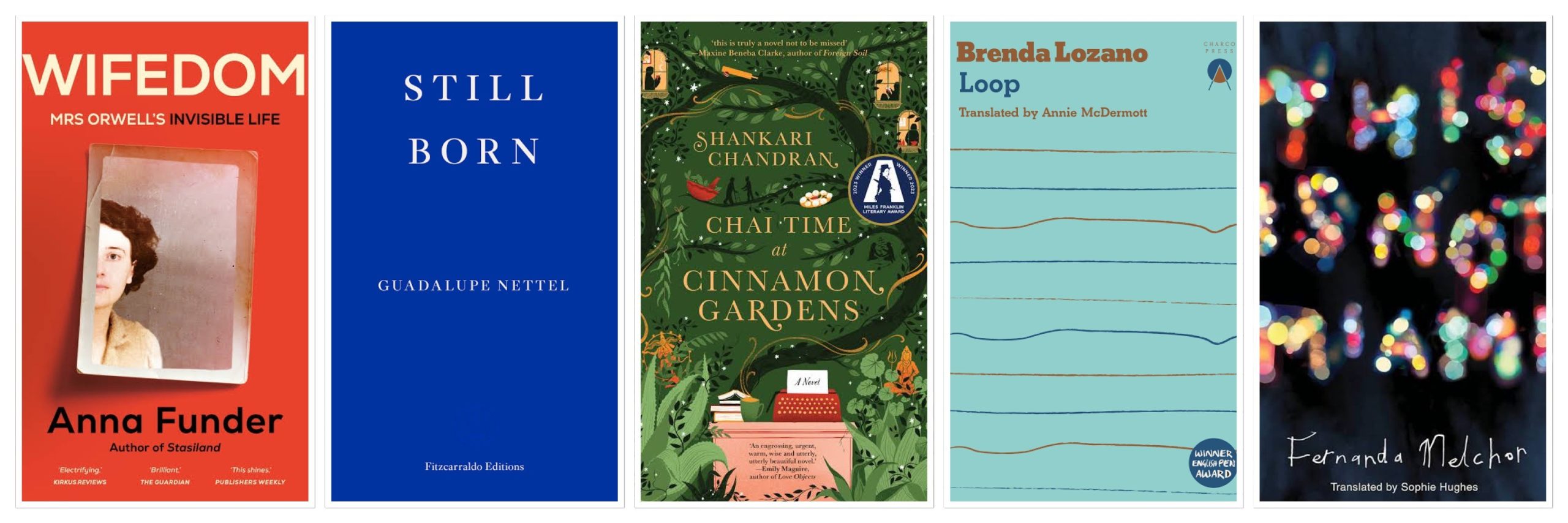
5. Wifedom: Mrs. Orwell’s Invisible Life by Anna Funder
We all know who George Orwell is, but how much do we know about his wife Eileen O’Shaughnessy? Anne Funder decided to research more about her and what she found was very depressing. Of the six biographies she read that were written about George Orwell, there is little to no information about his wife. Almost like she had no importance, and yet the more Funder researched the more she how just how much of an impact Eileen had in shaping some of the greatest works written by Orwell. This is an exploration of just one of many unsung women whose work goes unnoticed and never mentioned in the background of these so-called great men’s lives.
4. Still Born by Guadalupe Nettel (translated by Rosalind Harvey)
I probably only read about half of the International Booker Prize longlist of 2023, but this is the one that I wanted to win. It reminded me of Ariana Harwicz’s Die, My Love, but maybe less depressing. This is a novel of Alina and Laura who have decided they didn’t want to have children; they wanted to enjoy life. Although, things change for Alina and then we are struck with the horrors of a complicated pregnancy. This is a very emotional book, and so much is happening in this novel. I have only read one other book from Guadalupe Nettel (After the Winter) which I also recommend but I know I want to read them all.
3. Chai Time at Cinnamon Gardens by Shankari Chandran
Normally when I get given a book to read from my book club, I’m a little nervous. Not that I hate most of them, I just tend to like what everyone else dislikes. Chai Time at Cinnamon Gardens was the winner of the Miles Franklin Award this year, so I knew this was a popular pick, so I went in a little worried, but this was an extraordinary book. It is very Australian, but it also really focuses on the systemic racism that has been built into the Australian culture. Looking at the way the White Australia Policies of the past has started to really shape the country now and the effects that racism has on a small Sri Lankan run retirement home. This is not a feel good read as the cover and title might lead you to believe.
2. Loop by Brenda Lozano (translated by Annie McDermott)
It is so hard to explain this novel, so much is happening, but nothing is happening. This is a narrative following the life of a woman waiting for her boyfriend to return from his trip from Spain. She buys a notebook and begins writing down her every thought and feelings. On the surface it just feels like an insight into her diary, but there is something deeper happening here. We are getting a look into her thoughts on the world, love, relationships, music and her writing process.
1. This is Not Miami by Fernanda Melchor (translated by Sophie Hughes)
This is my first experience with the literary genre known as cronicás, a genre that blends journalism with fiction. I now need to read more of this style of writing. There is something about the way these stories blend humour with facts, but is told it in almost a conversational tone, I need more of this, and I need recommendations. Fernanda Melchor delivers her usual dark and creepy style but because of this literary genre, this might be my favourite of her books (so far).

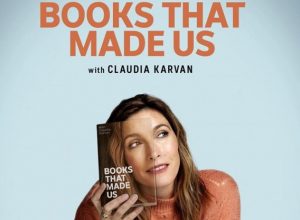 The Australian Broadcasting Corporation once aired a three-part special called
The Australian Broadcasting Corporation once aired a three-part special called 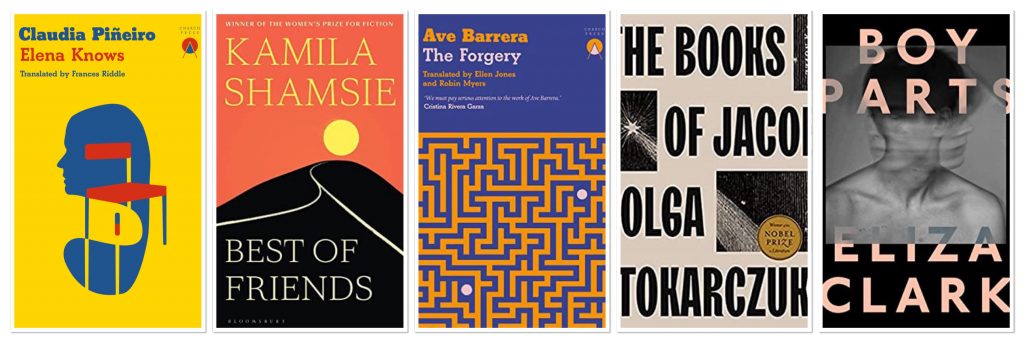


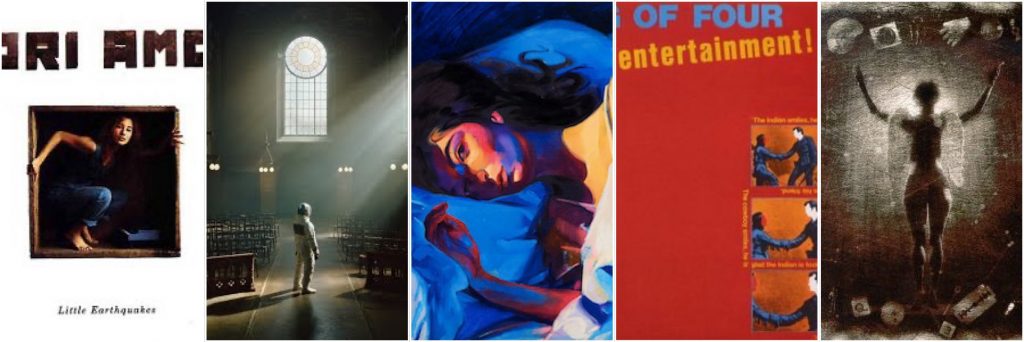
 This year
This year  November is National Novel Writing Month, or
November is National Novel Writing Month, or 

